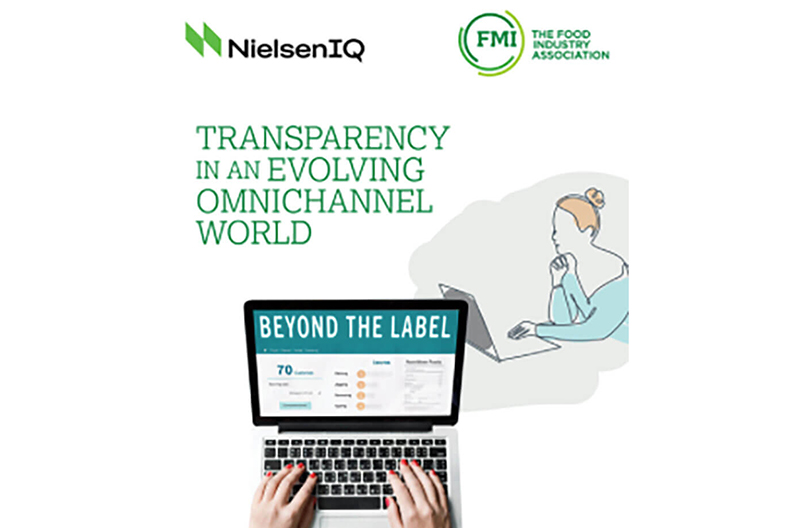The Food Industry Association and NielsenIQ released the “Transparency in an Evolving Omnichannel World” report, revealing continued high demand among consumers for transparency from food retailers and manufacturers, particularly in a more omnichannel marketplace.
According to the report, 64 percent of shoppers say they would switch from a brand they usually buy to another brand that provides more in-depth product information, beyond nutrition facts.
“The data from this report strongly reinforce the old adage that honesty is the best policy,” said Steve Markenson, director of research and insights for FMI.
“Consumers want to know where their food comes from and how it gets made, and that has held true even as the pandemic has changed grocery shopping habits. Whether online or in store, shoppers prefer brands that tell the whole story about their products,” he said.
“Transparency trends continue to evolve as omnichannel gains importance,” said Sherry Frey, VP of total wellness with NielsenIQ. “As consumers demand great transparency, brands have an opportunity to educate consumers, communicate sustainability and health credentials and win consumer loyalty.”
Transparency in health and well-being
Ingredient and nutrition information remain top of mind for an increasing number of health-conscious consumers. For example, 89 percent say general nutrition facts about a product are at least somewhat important in deciding which products to buy when grocery shopping – while 66 percent find this important or extremely important.
Beyond nutrition facts, 80 percent of shoppers cited other transparency indicators of importance to include allergen information, certifications and claims, and values-based information such as animal welfare, fair trade and labor practices.
Transparency in online shopping
In 2018, just over 26 percent purchased groceries online in the past 30 days. According to the latest findings, that number has now ballooned to 55 percent, making the online marketplace an ever more critical juncture for consumers to find their preferred brands and discover new ones. For example, 47 percent said discovery of new products, including information about sourcing and manufacturing processes, is easier online, compared to 23 percent saying harder and 30 percent saying the same.
When it comes to online shopping and transparency, 42 percent of shoppers say they want faster delivery, 37 percent say they want easier to use websites, 30 percent want more and better product information, 29 percent want retention of order history, 28 percent want more accurate search functionality and 23 percent want product recommendations based on preferences.
To view the “Transparency in an Evolving Omnichannel World” report, click here.
The Food Industry Association works with and on behalf of the entire industry to advance a safer, healthier and more efficient consumer food supply chain. FMI brings together a wide range of members across the value chain – from retailers that sell to consumers, to producers that supply food and other products, as well as the wide variety of companies providing critical services – to amplify the collective work of the industry.
For more information, visit FMI.org.
NielsenIQ enables confident decision-making for the world’s leading consumer goods companies and retailers. Using comprehensive data sets and measuring all transactions equally, NielsenIQ gives clients a forward-looking view into consumer behavior in order to optimize performance across all retail platforms. NielsenIQ, an Advent International portfolio company, has operations in nearly 100 markets, covering more than 90 percent of the world’s population.
For more information, visit nielsenIQ.com.
For more news on NielsenIQ’s recent reports, click here.

